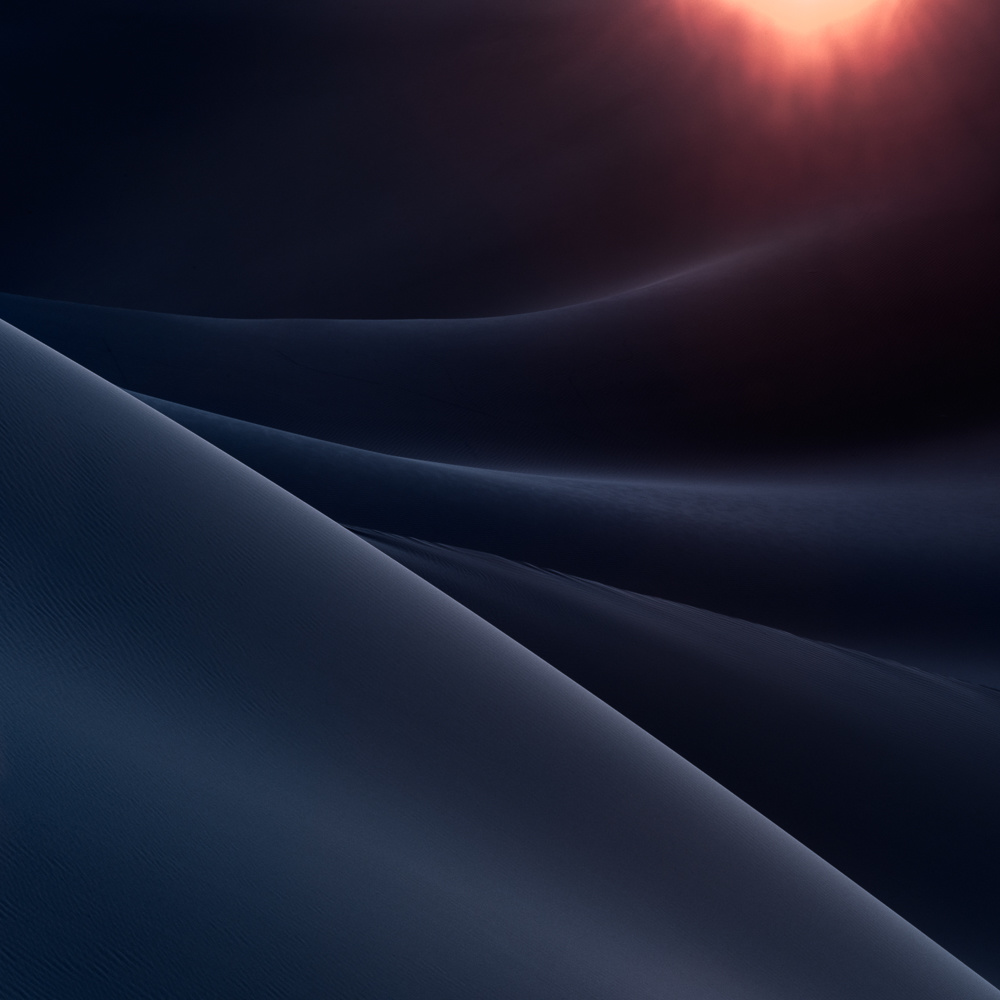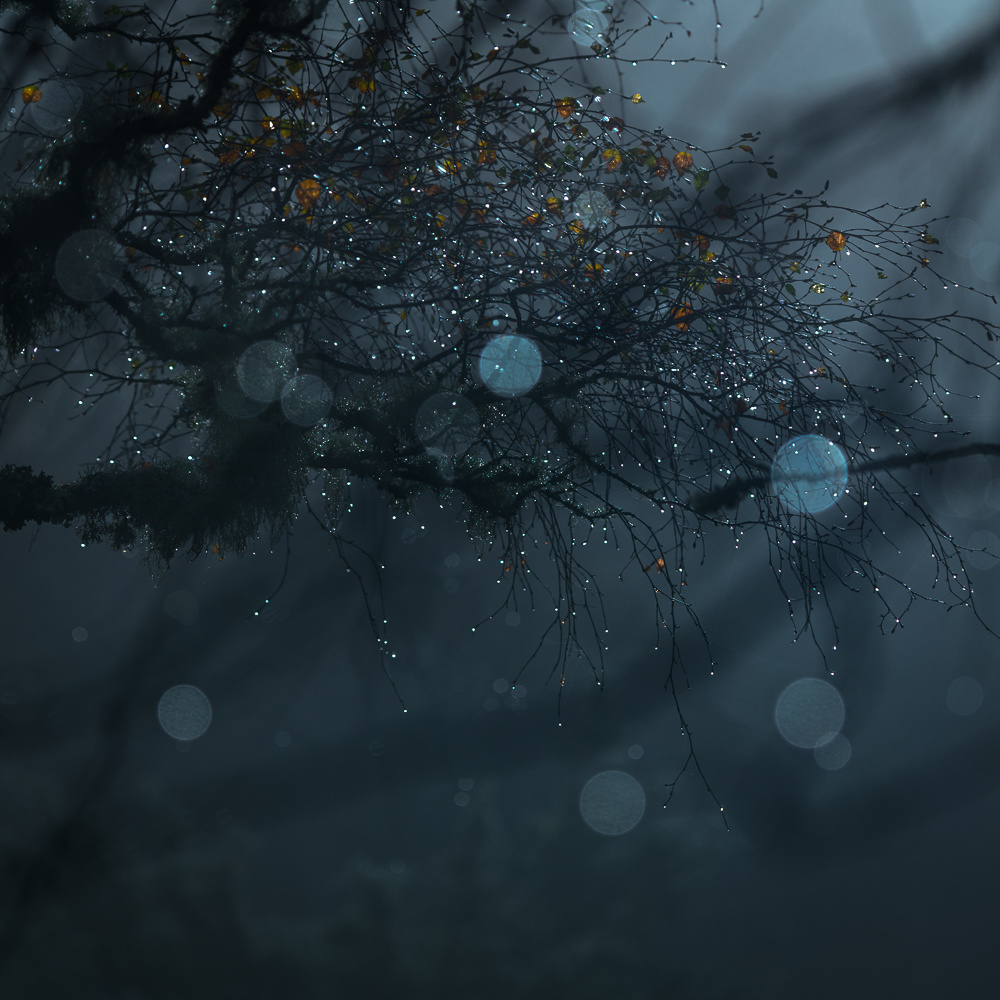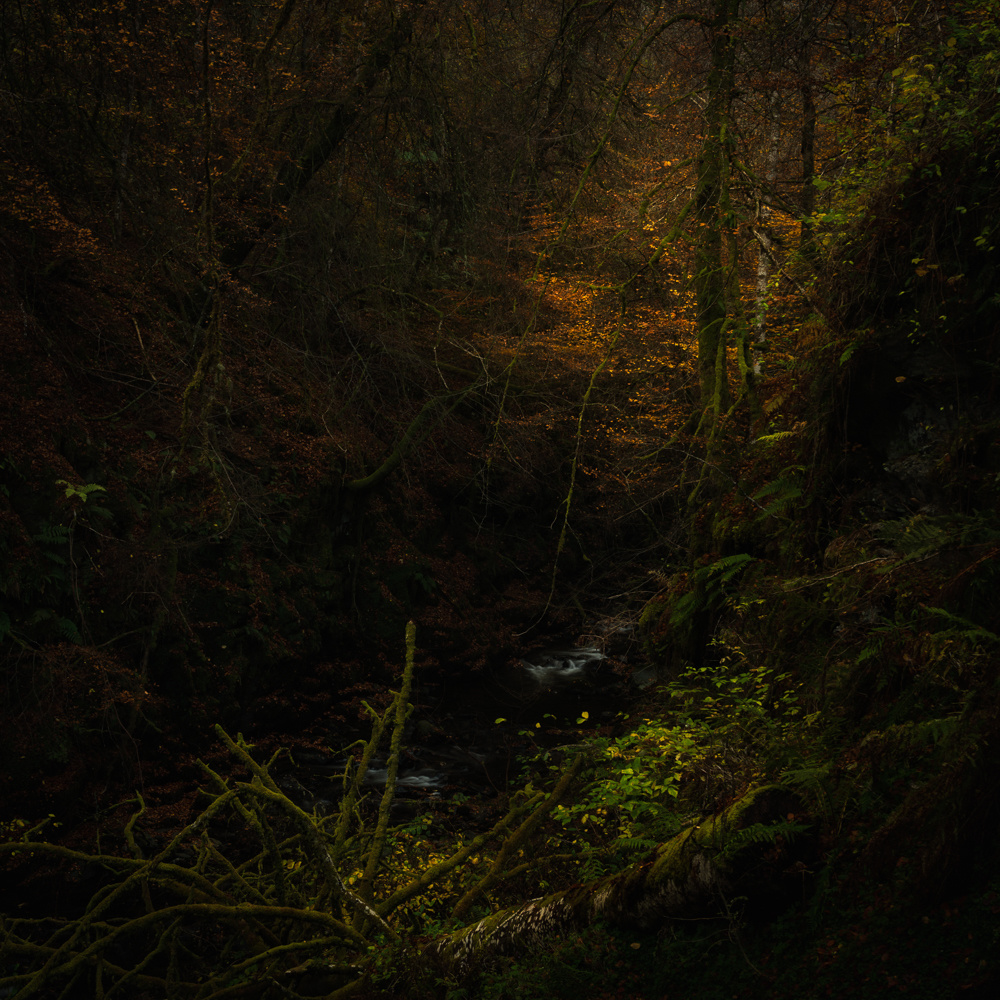Okay, I get it, that’s a pretty bold statement, but hear me out. I’ve been working on this for nearly two decades.
My entire life focuses around creativity; writing, teaching and running workshops. I get to speak with hundreds of people every year face to face about their creative goals, frustrations, and anxieties. I believe I have a large enough sample size to get right to the heart of the issue, so let’s go.
As a prelude, consider this one simple example: What right do I have to tell you what to like? How affronted would you be if I told you what clothes to wear, or what music to listen to? Those things are as preposterous as me telling you that a composition is good or bad, right or wrong.
1. Noticing Instead of Looking
We hear it all the time: “I was looking for a good composition.” Or “I couldn’t find a good composition.” Think about it for a second: When you look, what will you find? The likelihood is that you will find what you recognize as being societally acceptable in terms of arrangements. You will find rules, or something you have seen someone else do. We can only look for things that we already know. It is probably impossible to look for something unique and in some way represents you as a creative person. In fact, I’d go as far as to say that by looking for compositions, we blinker ourselves from our true creative vision.

Exercise: Imagine a group at a beach. You are among a mixed group of friends and instead of cameras in hand, you each have a notebook. Spend an hour sitting, or walking around the area. Every time you notice something that catches your eye, or sparks your imagination, or makes you think of something funny, or sad; make a note in your notebook.
- An amazing red starfish in a rock pool
- The way the light catches the crests of the waves as they break
- Beams of sunlight behind a dark cloud
- Patterns of light and dark sand on the beach
- A jagged rock pinnacle being smashed by waves
Each note is something that you have become aware of, these are the moments of engagement in your life. Noticing is a precious act in its own right.
Now, you have some notes, they mean something to you. Gather your friends and put your notes all together on the table. Tell me, who has the best notes? Is it the experienced note taker, or the person who has been to that beach 300 times? Is it the person with the most expensive notepad and pen?
Each and every note is valid — we all have our lives and to us they are precious.

The Creative Process starts with noticing, not looking.
2. Every Decision Has Consequences
When I first started shooing landscapes I didn’t know any rules, literally none. I’d always been inquisitive and playful, and to me, having grown up in the countryside, I always felt very at home there. The first landscape photographs I made were instinctive. I saw something I thought was cool and pointed my camera at it. It truly was as simple as that.
Then I made the mistake of listening to critique and external opinion. I was often told I was wrong and I didn’t understand the language of photography. I’m a sensitive soul, and began a decade of study, reading all I could on composition. I then read the history of art and studied painting. Learning the rules.
I then made photographs that were popular, and were often really quite pretty. But, they left me cold! I had no connection with them, and I felt I was making images by numbers. Thankfully, I threw all that out the window and I now make images that resonate with me. I notice things and point my camera at them. But the next stage is to understand this:

Every decisions has consequences.
Composition is not about rules, guidelines, and carved in stone. It is the articulation of your note: What did you notice, is that clear, or not? Composition is the manifestation of your thoughts, emotions and feelings, and every little thing you do with your arrangement or processing has a consequence. Once you understand the emotional consequence of moving the main subject of your photograph from one place in the frame to the other, then you are connected to your work.
3. Creativity Is Not Something You Find
You are no more likely to find creativity by seeking it, than you are of finding enlightenment or faith. Creativity is not something tangible, or finite. It is inside of us all, not outside. I spent a long time striving to find my creativity, reading, studying, walking in the footsteps of my peers and inspirations. It was not until I gave up one thing that I realized I had what I was looking for all along.

External validation
We live in societies, this is the human condition. We grew up in small groups, perhaps 40-50 strong, and being accepted by the tribe was essential to our very survival. Now, in 2020, with social media and networking, our tribes can be massive; thousands, if not millions in size. Making images and surrendering them to the “like culture” is poison for creativity.
I had a client last year on a workshop in Scotland, and one evening she asked my opinion of a couple of her black and white photographs. I started by asking a very important question. “Do you like them, and if so what do you like?” She told me she did and went on to articulate clearly the emotional resonance she had with her work. I told her that I could very much see what she was talking about, and that they resonated with me too. She then went on to tell me that a judge at her camera club had torn them apart and basically said they were rubbish.
Her confidence had been crushed because of an opinion. If she had played us all a piece of music she liked, she certainly would not have stopped liking the music because we did not. Understanding that we have a fragile relationship with our creativity is critical. We have to feed ourselves inside and insulate more against random external opinion.

Every week I will be writing articles about the creative process, separating the "how" from the "why" and trying to cut through the fog of misinformation to get to the core of what being a creative human can mean in this modern world.






Excellent article! I’ve been asking myself what catches the eye lately. It’s like I have to relearn my instincts. I’ve been “working” on compositions lately and have struggled to make “progress” in this area. Maybe that’s a sign I shouldn’t force it? I’d love to hear the community’s thoughts on this one.
Edit: Almost forgot to mention great photos, Alister!
Thanks for your comment. I think about this all the time, and have been through many stages in this game of creativity. I used to totally know when I was forcing it, it felt different, and the images never really worked. Now, I am far more relaxed and have very little expectation or judgement. Being happy in the landscape feels like a massive bonus to me, as it's being out there that matters most to me.
Thanks again for your comment, I feel trusting your gut will get you a long way in this game. Very best wishes, be safe.
Really nice way to kick it off here! Some very good points and great analogies. Looking forward to the next articles, too :)
Thanks man, that's really appreciated. Looking forward to writing lots more in these days of lockdown.
A term used by psychologists is 'thin boundaries', where things that are usually separate become connected. We all experience this in the weird things that happen in dreams. Suddenly you're riding a bicycle underwater. As you do.
Some people are better than others doing this while awake (I find dull work meetings are a good time...).
Back in 2007, when I was fairly new to photography, I kept pet yabbies in tank (cherax destructor, for those who love these things). Fascinating creatures.
Then one day I notice an Ox-eye weed flower in our back yard. Bingo, that joined two unrelated concepts to give me this photo shoot. Does it work? Dunno, but it was fun and today I'd be better skilled on the technical side.
Thanks for that. I love the photograph, bizarre, yet humorous.
This was a valuable article and an approach to the subject I found meaningful. Great one Alister!
Thanks for that Hans, really pleased to hear that. I know that I'm coming at this from an obscure direction, but for me over the last 4-5 years it has changed not only my creativity, but my quality of life as well.
Great article and photos Alister! I love your approach to photography it really is liberating and I find I am more creative when I am taking the photo for myself rather than for any future ‘audience’. It is easy to fall back into the trap of ‘following the rules’ and what is great I now know when I am doing that and I take a deep breath and ask myself who am I taking the photo for and remind myself I am doing it for me. Confidence takes a bit longer but getting there!! 😄 Looking forward to future articles.
Thanks for that Jane, I really appreciate the feedback. So much has changed since we spent time together last autumn! The things we took for granted are no longer possible. Perhaps now is the time for us to look back and forward and realise what the landscape can do for us, and what we can do for it.
Very nicely put. Looking forward to more.
That's great to hear - thanks very much
This may be the best article I’ve read on fstoppers... yes I’ve subscribed to your YouTube channel... For once, a discussion that is pure creativity while excluding the normal “gear head” talk that a reader endures. You’ve inspired me to go out with pad and paper for awhile. Often in my photographic journey, I go out to look rather than notice. As an example, I live on a swampy creek where there are an abundance of snakes. When I first moved here, I would search for them, mostly out of fear. I would never find one. On days that I would go out to do something else like fishing or photographing, I would notice one. Interesting....
You've made my afternoon with your comment. I'm hugely encouraged by that. Thanks so much.
Thanks, I needed that.
Happy to hear that - more on the way very shortly.
Thanks Alister. I am currently taking a photography class and much of what you've said in your article we have been learning....I find that there are certain photos I take which evoke some feeling in me and might not in others. It's all ok. Taking photos in ways that others may not have thought of is the key to creativity.
Thank you for your kind comment. I truly believe the biggest mistruth in photography teaching is that external validation is important. Yes, we should learn the ways of visual articulation and when skilfully presented an image can certainly manipulate a viewers emotions. However, pleasing ourselves is the first step, fear prevents us from often exploring our preferred path.
I'm going to start following your suggestions, but first I'm between a Monte Blanc or Cartier pen. Which do you think would be better for me? Just kidding. The question you posed reminded me of so many photo forum posts, I laughed out loud. This, as others have said, is one of the best articles to appear on Fstoppers. Hope to see another soon.
Thanks Jim, really appreciated, I'm a charcoal guy myself! :-) I'm hoping to get unique original content up every week, as I am on a bit of a mission to get some of these concepts out into the broader spectrum of photographers. Thanks again.
I agree with everything you're saying.
I always find that when walking with friends I'm noticing details that they just walk on by. When you are seeking interesting things instead of just trying to get from point A to point B you will find more interesting things.
Kind of the same with composition. Instead of just raising the camera with some rule in your mind search a little bit. Play with the contrasts, luminosity contrasts, color, focal plane, relative speed, etc. etc.
People who appreciate art don't care about the rules. They know what they like and it typically doesn't have much to do with what technical photographers ramble on about or people judging a contest.
Thanks very much for the comment, very much appreciated. My next article going live on Thursday is all about my distaste for rules :-)
The designer/art director George Hardie (Pink Floyd, 10CC) was asked at a party what he did for a living. He replied, "Art Director." "What is that?" They said. After thinking a moment he said, "I notice things and I get things noticed."
I couldn't agree more...
One of the best articles I've ever read here. I'm subscribing to everything you put out going forward. Really refreshing to find such useful and frank discussion on the art of photography in this world where equipment reviews and technique get so much of the attention.
This is massively appreciated. Thanks so much. I am on something of a mission, and it is great to have such encouraging feedback.